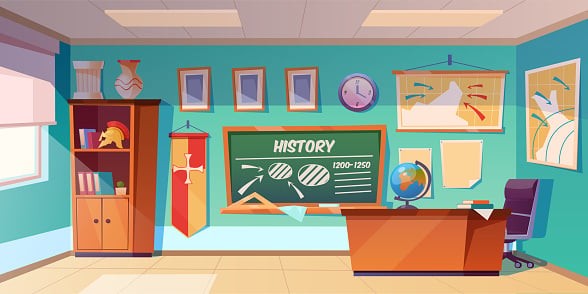The world offers endless learning opportunities, from coding to languages. Yet, amidst this vast landscape of knowledge, the question arises: Why Is History Important To Learn? Many dismiss history as dull or irrelevant, a relic of high school textbooks. However, understanding the past is crucial for navigating the present and shaping the future.
History is not simply a chronicle of bygone events; it’s a living narrative that shapes our present and influences our future. By studying history, we gain insights into the forces that have molded societies, cultures, and individuals. This knowledge empowers us to learn from past mistakes, appreciate present circumstances, and make informed decisions for the future.
How Does History Impact Our Lives Today?
Past events have profoundly shaped our modern world. From geopolitical boundaries to governmental structures, the echoes of history resonate in our daily lives. Consider the Great Depression, a defining moment in American history. This economic crisis resulted in widespread unemployment and hardship, leaving lasting scars on individuals and communities.
However, the Great Depression also spurred significant societal changes. The government implemented programs like Social Security and unemployment relief, initiatives that continue to provide crucial safety nets today. This illustrates how historical events can lead to profound and lasting societal transformations.
History teaches us valuable lessons about:
- The rise and fall of civilizations
- The causes and consequences of conflict
- The evolution of social movements and progress
History is not just about distant figures and events; it’s about understanding the human story. The actions of individuals and societies in the past directly impact our lives today. By studying history, we connect with our shared human heritage and gain a deeper understanding of the world around us.
Understanding the Present Through the Past
The past is the foundation upon which the present is built. Only by understanding past events can we comprehend how we arrived at our current circumstances and chart a course for the future.
History Illuminates Change
History is a tapestry of transitions that have shaped the world. Studying historical movements, like the American civil rights movement, provides insights into how individuals and groups can challenge oppressive systems and effect meaningful change. Examining the decline of the Roman Empire reveals the fragility of even the most powerful societies. By analyzing historical patterns of change, we can better anticipate and adapt to future transformations.
Learning from Past Mistakes
History offers a wealth of knowledge about the consequences of decisions and actions. By studying past conflicts, we gain a deeper understanding of the complexities of war and the challenges of diplomacy. Analyzing historical disasters, from genocides to environmental crises, allows us to recognize warning signs and potentially avert similar tragedies in the future.
Contextualizing the Human Experience
History provides context for understanding current events and challenges. The COVID-19 pandemic, for example, drew renewed attention to the 1918-1919 flu pandemic. Historical accounts of the earlier pandemic offered valuable insights into the potential trajectory of the virus, the importance of public health measures, and the psychological impact of widespread illness.
Critical Thinking and Historical Inquiry
In the digital age, access to historical information is readily available. However, learning history is not simply about memorizing facts and dates. It requires critical thinking skills to analyze information, interpret evidence, and draw informed conclusions. Analyzing the fall of the Roman Empire, for example, involves considering multiple contributing factors, such as political instability, economic decline, and external pressures. Developing these critical thinking skills is essential for navigating a complex and ever-changing world.
Beyond simply recounting events, studying history involves asking the crucial question: “So what?” Why did certain civilizations flourish while others faltered? What were the turning points in major conflicts? By exploring the “why” behind historical events, we gain a deeper understanding of their significance and relevance to our own lives.
Where to Learn History Online
Reputable online learning platforms, like edX, offer high-quality history courses from leading universities worldwide. These courses provide in-depth explorations of historical topics, fostering a comprehensive understanding of the past. Embarking on the study of history is a journey of discovery, offering invaluable insights into the human experience and empowering us to shape a more informed future.

